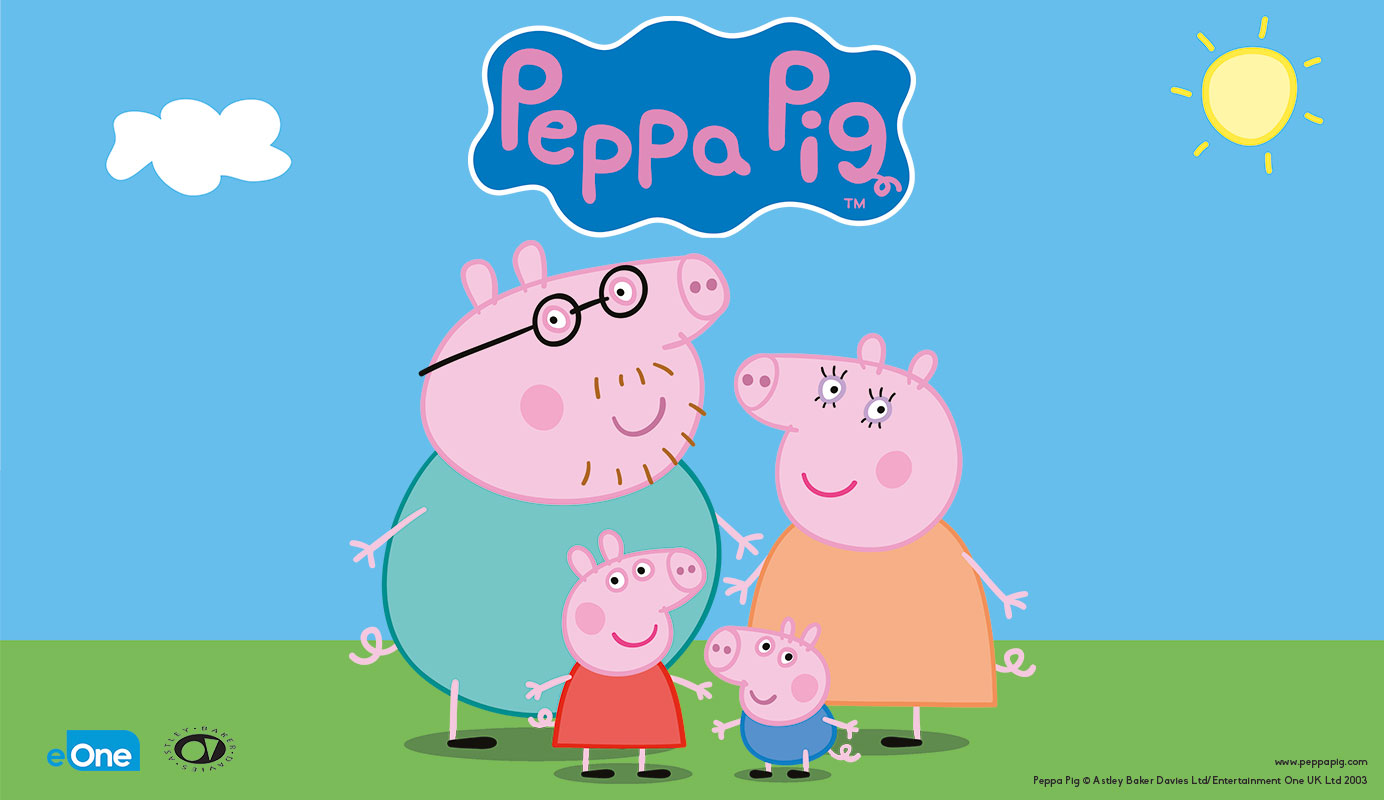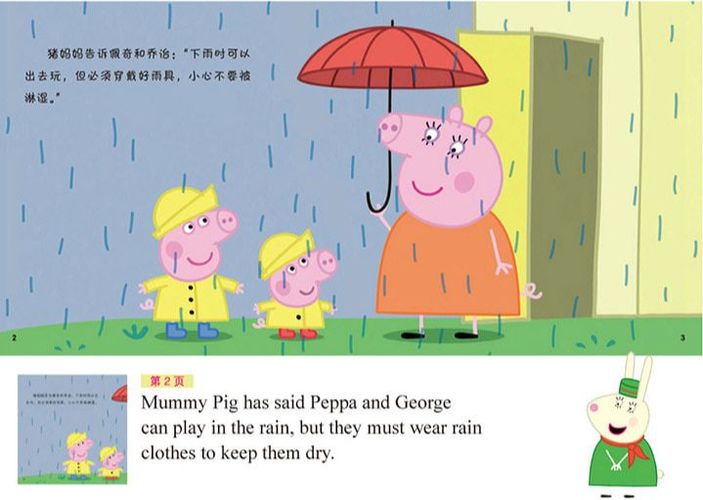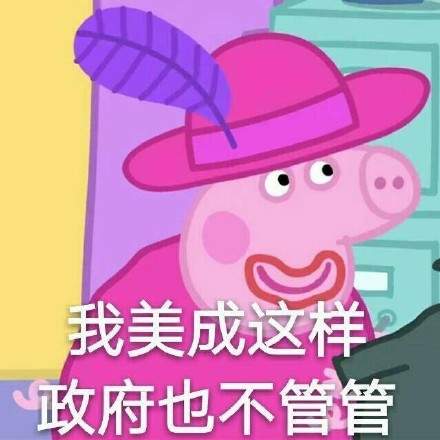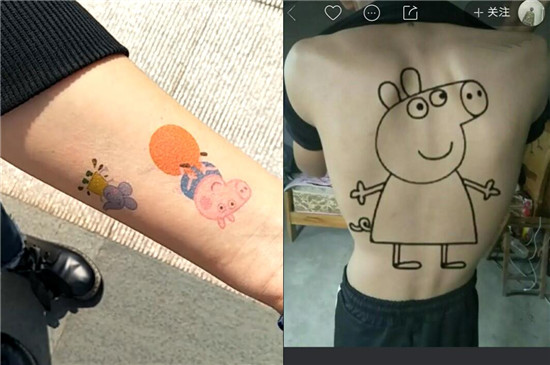


Peppa Pig Cartoon
In the famous Chinese fable, Journey to the West, a Pig named Bajie embarked on an epic pilgrimage to foreign lands, and his legendary tales were turned into a Netflix series in 2017. Though remarkable, Bajie’s overseas popularity hardly holds a candle to his British counterpart, the controversial Peppa Pig, who now serves as a subculture icon in China.
The cartoon pig, who was introduced in China in 2015, has become a huge hit among the Chinese public thanks to her frequent presence on video sharing and social media platforms. At time of press, Peppa has attracted over 45 billion views on Chinese video platforms, garnering over 320 million hits on China’s Twitter-like microblog.
Such great popularity may have also led to the pink piggy’s own downfall. According to media reports, user-produced content based on Peppa Pig has been removed from popular short-video platform Douyin in May due to certain “gangster adaptations” that disrupt “social harmony”. Though Douyin later denounced the rumors, a large number of Peppa videos still cannot be accessed as of press time.
“Peppa is a fascinating cartoon character. The cartoon’s unprecedented success indicates a new trend of cultural innovation in China, while the inappropriate adaptations have raised public awareness of the country’s long-ignored and unregulated subculture,” Chen Chuyu, a Beijing-based independent cartoon producer told People’s Daily Online.
The road to fame
“I watch Peppa Pig with my kids every day. The cartoon is simple and instructive, aside from its function as an English learning material,” Lin Xuanhua, a 32-year-old mother of two, told People’s Daily Online.
Many parents and educational institutions share the same opinion as Lin. According to Thepaper.cn, a Middle School in Hangzhou, Zhejiang province used the cartoon as a teaching and testing tool, noting that Peppa can promote students’ interest in learning English.
A report released by Jiuban Read, a Hangzhou-based educational institution in 2017, has provided solid theoretical support for such a teaching method. The report noted that Peppa Pig’s first season included 85 high frequency English words, which are recognized by Edward William Dolch, the father of sight words, as “essential” for reading and writing in English.

Peppa Pig Children's books
“The cartoon’s educational function has only led to its popularity among Chinese parents and kids. It’s the young adults who have turned the pig into a cultural icon, as the cartoon has offered them a chance for cultural innovation and re-creation,” said Chen.

A Peppa Pig emoji with a caption saying: The government should take some actions to deal with my unparalleled beauty.
Unlike children who pick up new English words and entertainment from Peppa, Chinese netizens have used the cartoon character to express more complex social realities via re-creation and adaptation. Peppa Image Macro, a Sina Weibo account which features Peppa related images, has cumulated over 230,000 followers. The account makes countless Peppa emojis to show their mood or depict their daily life. Spoof video clips with dialect dubbing have also become widespread on Chinese social media, with many netizens localizing the show, as well as adding content that caters to the needs of different social groups throughout China.
“Peppa Pig’s story lines and images are simple and interesting, leaving more space for young people to recreate their own stories. It has become an icon for derivative work,” Chen added.
Enjoying universal popularity, Peppa has brought home the bacon. According to Xinhua News, the producer of Peppa Pig, Entertainment One, has watched their income skyrocket in China during 2017, with a year-on-year increase of over 700 percent. The company has even planned to build a Peppa Theme Park, as well as launching a three-year performing tour across China.
“I think it’s a win-win solution for both the producer and the audience, with the former making a bundle, while the later enjoy recreation and fun,” said Chen.
Regulating the mischievous pig
Gaining great popularity, Peppa has also drawn criticism from the public and experts, who believed that inappropriate adaptations may lead to intellectual infringement, as well as causing a negative influence on the younger generation.
A search for “Peppa killing” on China’s video platforms yield several results, with one adaptation telling a story of the piglet being killed by her brother George. Despite the disturbing nature of such videos, some have attracted thousands of views.
Meanwhile, tattoo stickers and unauthorized accessories of Peppa Pig have also popped up in online stores, making the character an unexpected icon of gangster subculture in China.
Several experts told the Global Times that the popularity of the cartoon demonstrates the social psychology of “hunting for novelty and spoofing, which could potentially hamper positive societal morale.”

Peppa Pig tattoo stickers.
"If subcultural thoughts and behaviors get out of control to the extreme, it could damage society," said Jiang Haisheng, chief of the Journalism and Communication Department under Shandong University of Political Science and Law, told the Global Times.
Echoing Jiang, Chen Lizhong, CEO of IdeaWorld, Peppa Pig’s Chinese business promoter, told Xiamen Daily that such negative adaptations of Peppa Pig should be regulated.
“Though such adaptations can promote the popularity of Peppa, they have already tainted the good spirit the character has brought to the public, we cannot accept that Peppa has been used as a gangster cultural icon,” Chen added.
Chen further encouraged proper cultural innovation, noting that his company is now considering dressing Peppa Pig in traditional Chinese costumes, in an effort to celebrate the upcoming year of pig in China.

 Award-winning photos show poverty reduction achievements in NE China's Jilin province
Award-winning photos show poverty reduction achievements in NE China's Jilin province People dance to greet advent of New Year in Ameiqituo Town, Guizhou
People dance to greet advent of New Year in Ameiqituo Town, Guizhou Fire brigade in Shanghai holds group wedding
Fire brigade in Shanghai holds group wedding Tourists enjoy ice sculptures in Datan Town, north China
Tourists enjoy ice sculptures in Datan Town, north China Sunset scenery of Dayan Pagoda in Xi'an
Sunset scenery of Dayan Pagoda in Xi'an Tourists have fun at scenic spot in Nanlong Town, NW China
Tourists have fun at scenic spot in Nanlong Town, NW China Harbin attracts tourists by making best use of ice in winter
Harbin attracts tourists by making best use of ice in winter In pics: FIS Alpine Ski Women's World Cup Slalom
In pics: FIS Alpine Ski Women's World Cup Slalom Black-necked cranes rest at reservoir in Lhunzhub County, Lhasa
Black-necked cranes rest at reservoir in Lhunzhub County, Lhasa China's FAST telescope will be available to foreign scientists in April
China's FAST telescope will be available to foreign scientists in April